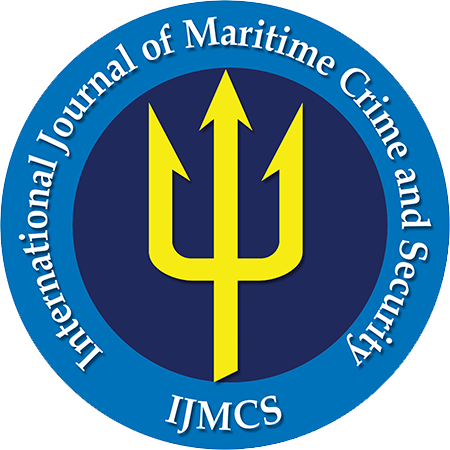Editorial Comments
Articles
Seeing like a Pirate: The Entrepreneurship of Piracy in Southeast Asia
-
Why has piracy flourished in Southeast Asia over the past decade? What are the underlying incentives for pirates, and how do these forces influence their operations? This paper explores these questions through the lens of enterprise theory, an approach that posits that piracy, much like any business venture, is run by risk-taking entrepreneurs who make decisions in reaction to market demands and economic opportunities. By framing pirates as entrepreneurs and piracy as a business, this paper argues that treating piracy as a rational, market-driven enterprise is crucial to deciphering the persistence and resilience of these criminal syndicates. In support of this thesis, the paper delves into the economic underpinnings of piracy, analyzing how market demand for commodities drives piracy. It also examines how pirates have adapted their organizational structure and operational strategies to the changing security and economic landscape. Concluding, this paper recommends that counterpiracy should focus on denying pirates access to necessary inputs for their business and reducing the economic incentives for piracy.
- View article
The 2013 Yaounde code of conduct: an evaluation
-
This paper examines the Yaoundé Code of Conduct - the maritime Security framework of 2013 for countering piracy/sea robbery in West African states of the Gulf of Guinea. Premised against the pernicious and near perennial challenge of low maritime domain awareness and a poorly organized ocean governance infrastructure which has undermined the thriving of the blue economy and the Safety of Life at Sea in the region. The paper examines the Yaoundé Architecture through the lenses of piracy/sea robbery as it effects the blue economy. Triangulation was used both as a methodology as well as method of data collection from a critical mass of global and regional maritime stakeholders-agencies/actors in the region as well as secondary sources, to interrogate the seemingly perennial and ever-dynamic phenomenon of Piracy and Sea Robbery in the Gulf of Guinea. The paper concludes with some recommendations aimed at improving upon and consolidating on the gains of the Yaoundé Architecture through the Yaoundé Code of Conduct in countering piracy/sea robbery along with other transnational maritime crime in the Gulf of Guinea.
- View article
Polar Opposites
-
The frigid extremes of the planet are often ignored and largely misunderstood, even though they cover 11 million square miles (37.7 million square kilometres) and are often dismissed as uninhabitable, unimportant, frozen wastes that constitute the white margins at the edge of the map of the world. Their harsh environment and geographical isolation make them difficult to visit and challenging to live in. However, these two regions are so geographically different from each other, but play a fundamental role in the environmental balance of the globe’s climate. They are both strategically important and could act as geopolitical flashpoints. It is therefore crucial that we begin to look at these two areas from a more critical perspective, understand their pivotal importance to the future. The politics that surround these two areas are complex and fascinating, the economic value is significant, the social characteristics of the two regions are very different but equally important. As technology evolves mastering these two areas will alter, which will throw up a range of legal and environmental hurdles. The Arctic and Antarctic are both maritime domains and managing the maritime security concerns will be considerable. This article is designed to describe some of the aspects of the polar regions, provide some background and prompt discussion. These regions are destined to be more important to our future than most of have imagined.
- View article
Previous Issue
- Volume 03 Issue 02
- Volume 03 Issue 01
- Volume 02 Issue 02
- Volume 02 Issue 01
- Volume 01 Issue 02
- Volume 01 Issue 01



